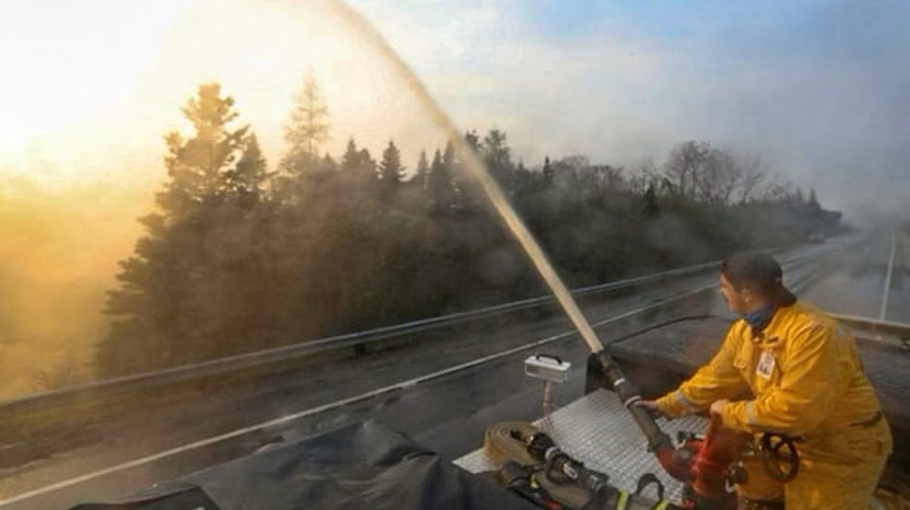Rain in Canada’s east aids mass firefighting effort

The arrival of rain to eastern Canada Saturday brought relief to firefighters in Nova Scotia province battling historic wildfires for nearly a week, though the situation in Quebec remained critical.
Of the fires threatening Nova Scotia's provincial capital Halifax, 85 percent have been brought under control to "a state of being held," authorities said at a press conference Saturday morning.
"The rain that we are getting now is going to help the suppression issues, but that being said this fire is not out and it will not be declared out for some time," said Dave Steeves of the provincial Department of Natural Resources.
By Friday evening, half of the 16,000 evacuees from Halifax's northeastern suburbs had been allowed to return home.
"This is excellent," Dave Meldrum, deputy chief of Halifax Regional Fire and Emergency Services, said of the rain.
"This is not a heavy downpour that runs off and disappears -- this will soak into the ground more effectively."
Canadian armed services and US firefighters are expected to join in the region's wildfire suppression efforts over the weekend.
After major flare-ups in the west of the country in May, notably in the Prairie provinces of Alberta and Saskatchewan, firefighting shifted in the past week to Nova Scotia on the Atlantic coast and the French-speaking province of Quebec.
More than 130 forest fires, some 80 of them considered out of control, remain active in Quebec, forcing more than 2,000 additional people to evacuate.
"Winds will be variable today, so it could change at any time," warned Isabelle Gariepy of the SOPFEU forest fire protection service.
A fire that forced more than 10,000 people to evacuate the region around Sept-Iles, in the north of Quebec near the St. Lawrence River, remained "out of control" but had not evolved further overnight, authorities said.
Canada has been hit repeatedly by extreme weather in recent years, the intensity and frequency of which have increased due to global warming.


